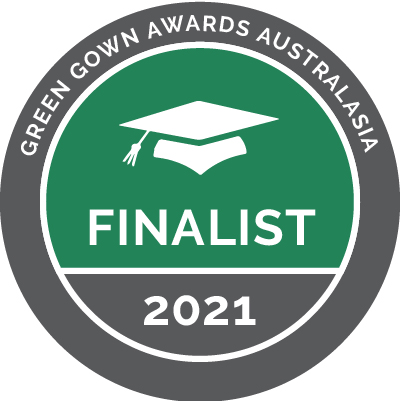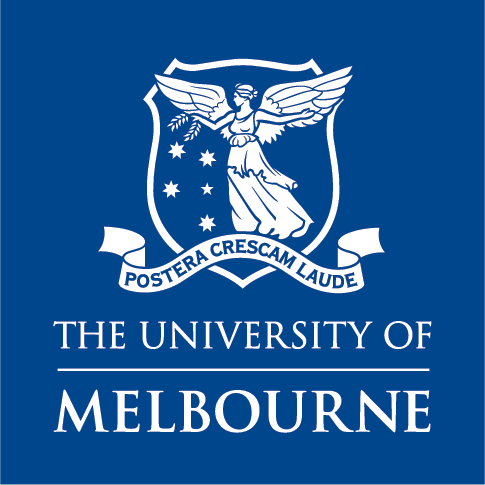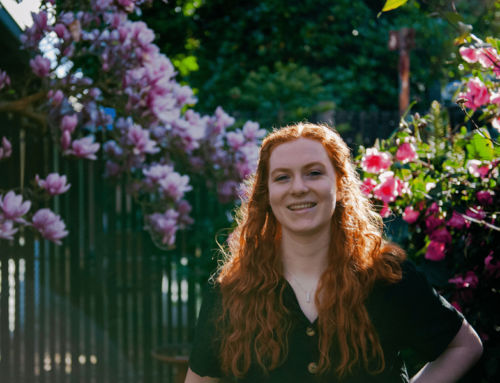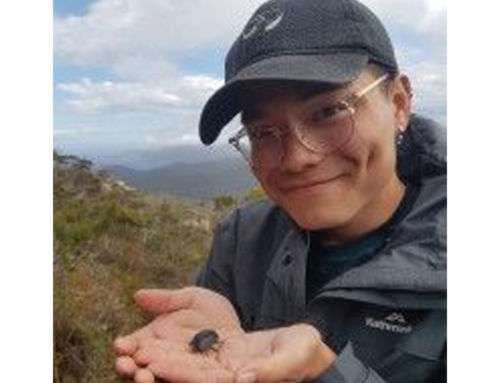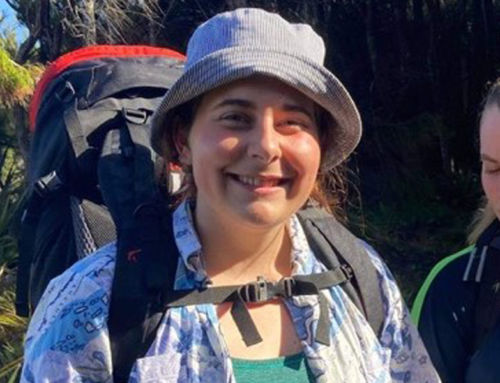The University of Melbourne
Alex’s aim is to be a strong voice for the voiceless and the powerless, using the law as a megaphone to echo the alarm bells from nature’s creation and inspire sustainable action.
In 2020, Alex was elected as MULSS (Melbourne University Law Students’ Society) Environment Director and concurrently as VELSN (Victorian Environmental Law Student Network) Vice-President and while in office he was able to complete the following initiatives:
- led the planning, creating and implementation of the Climate Emergency & Environmental Crisis (CE&EC) Declaration;
- organised activities such as a beach or river clean-ups and native plants revegetation with environmental groups.
- began conversations with businesses around campus to introduce a keep-cup/plate program.
Currently as VELSN President, Alex is:
- lobbying faculties and the university to declare CE&EC.
- leading the writing and creation of a Code for Environmental and Climate Conscious Lawyering.
- leading and managing VELSN’s working group on Recognition of the Rights and Personhood of the Yarra River.
- organising environmental-related law student competitions.
- establishing a native plants garden on the University of Melbourne (UoM) campus.
And has previously organised a Parade for Nature and #ChemicalsFreeSeptember.
> A closer look
Alex is a marine biologist and ecologist who, after studying the laws of physics, chemistry, biology, ecology and sociology, and witnessing first-hand the impacts of global warming and plastic pollution on coral reefs, realised that the best way to solve the environmental problems of our times is not by learning more science or managing the environment; but rather, by managing our own (species’) actions as nature will keep on doing what it has always done. It is for this reason that Alex decided that if he was to ‘win’ a few hands at the ‘monopoly of life’ called Society he needed to study the laws of humanity. Hence, he decided to start as a Juris Doctor in Law. From day one, he realised that this change in career, from an environmental perspective, was highly needed. This is because there are very few law students with a scientific background and professionally acquired environmental awareness. Many are concerned about the dooming climate news, but few go beyond and actively engage in finding a solution. Being humans, most are mainly concerned about human matters and only act if the issue personally affects them.
Being new to Melbourne, Alex did not know where to get involved in environmental activism and soon joined several environmental groups (Australian Conservation Group – Macnamara; Friends of the Earth; Postgraduate Environmental Network (PEN); Environment Victoria). Alex was relieved to meet like-minded students from VELSN, the Victorian Environmental Law Student Network, based at the Melbourne Law School and immediately wanted to become part of the committee. At the VELSN AGM he was nominated Vice-President. Further, Alex wanted to reach the highest number of law students and was elected Environment Director of the Melbourne University Law Students’ Society (MULSS), Melbourne Law School’s main student body, with over one thousand members. Empowered with both offices, Alex wrote several articles for the Melbourne Law School Journals (De Minimis and Purely Dicta), raising awareness about climate change, waste management, plastic pollution and biodiversity loss. He then led the writing of the Climate Emergency and Environmental Crisis Declaration, organised several environmental activities for law students such as:
- “Movies that Matter” (interrupted by the COVID Pandemic),
- “Pamper the Penguins”,
- beach and Yarra River Clan-ups,
- “MLS Contingent for the Climate Strike”,
- native plants and tree revegetation,
- annual lectures on “Climate Conscious Lawyering” (the inspiration for the Code) and “Waste Management”.
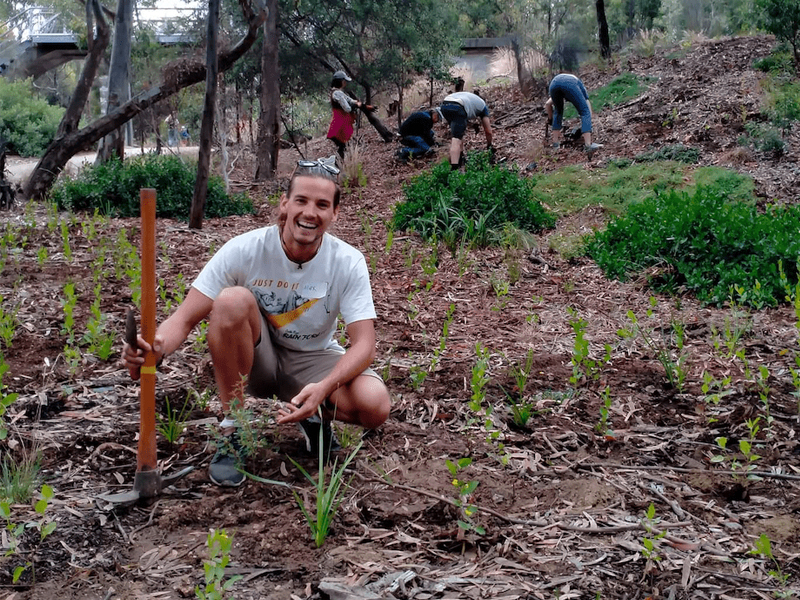
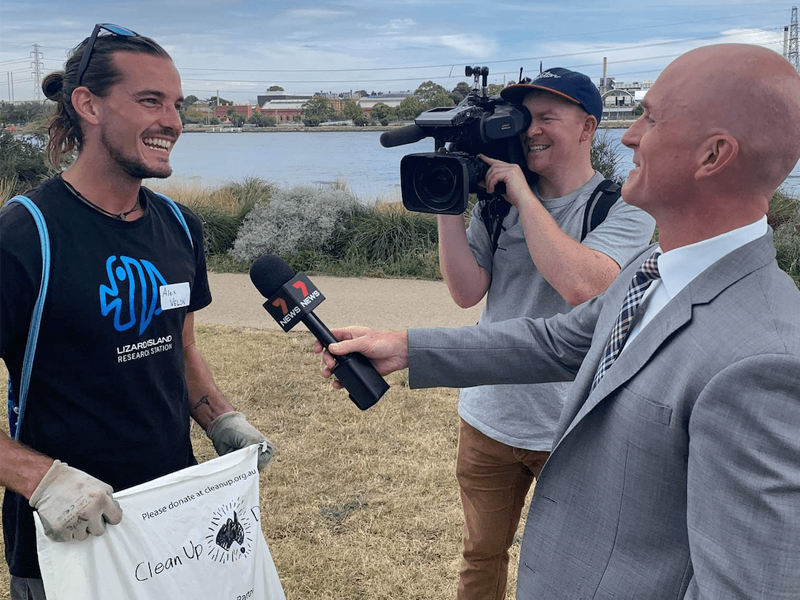
Alex is now often regarded as the “green voice of law students” at Melbourne Law School.
1 Buck A. “Global Warming – A Hot Topic, but is it Really?” (2019) 1(7).
Buck A. “Metaphor of Our Times” (2019) 2(4).
2 Buck A. et al. “Chemicals-Free September” (September 1, 2020).
Buck A et al. “Yarra Clean Up Australia Event”, VELSN Blog, (March 24, 2021).
> Impact and benefits
Climate Emergency and Environmental Crisis (CE&EC) Declaration
Corporations and incorporeal entities speak and “act” through what is written in documents. A CEO or Director may have very ‘green’ views, but unless the corporation they run recognises in writing those thoughts, it will be harder and more time consuming to keep such corporations accountable for any ‘unsustainable’ action it undertakes, unless, of course, in breach of a law. Capitalising on the intellectual brainpower coming from VELSN and MULSS, and inspired by the Sydney Law School’s Climate Declaration, Alex took the lead on the drafting of a CE&EC Declaration, which was adopted by the student Societies in September 2020, and now binds the activities of these societies and their 1000+ members. In practice, the declaration will assist the future Environment Directors and student members in ensuring that decisions of the Societies’ Committees be made with an active consideration of principles of sustainability, such as energy and waste minimisation, environmental education and environmentally aware money expenditure. Using the student declaration as a blueprint, Alex now has corporations such as the Melbourne Law School (MLS) and the University of Melbourne (UoM) signing CE&EC Declarations, with the hope that students and staff will have more and easier leverage on holding these corporations to account in any and every decision they make, speeding up and simplifying the transition to more sustainable board decisions and activities. Further, by having a dedicated team of ‘environmental experts’ synthesise some guidelines in a Code (see below), we hope that anyone can easily take inspiration (and obligation) to become more sustainable while pursuing their agenda.
Code for Environmental and Climate Conscious Lawyering
The law is a powerful tool of proactive chance and reactive enforcement. This is why Alex is leading the development of a Code that will assist lawyers be more environmentally and climate conscious, thereby assisting them in giving due consideration not only to the legal framework of the task before them, but also to other inherent risks of the clients’ activities, such as physical risks to business’ assets due to an ever more unstable climate and extreme weather events; transitional risks of loss of revenue or profits due to markets and consumers shifting to lower carbon and more sustainable alternatives; and liability risks of conducting ‘business as usual’, including the (increasing) risks of litigation for contribution or failure to minimise impacts on the environment and the climate. Following the Code, lawyers will give more environmentally-sound advice to their clients, be that in the set-up, running or closure of business, or advising government or individuals. Environmental and Climate conscious lawmakers and politicians will be aware of their international, professional and ethical obligations, meaning that they will be less influenced by strongly ‘pro-development’ lobby groups, hopefully resulting in a ‘greening’ of the Nation, meanwhile keeping everyone’s economic and wellbeing interests in mind.
Beach and Yara river clean-ups, Tree planting and revegetation activities
It is only (or mainly) by seeing and engaging with a problem that we can have an epiphany or realisation on how to best solve it. Further, being a Network of Environmental Lawyers, VELSN strives at bringing like-minded people together. Therefore, Alex organises hands-on trips believing that they are one of the best ways of creating a cohesive group; observing the problem at hand; figuring out the logistics and challenges of the solutions adopted, their limitations and how they can be improved; and meeting people outside the group so that it can grow, expand and be positively influenced. Further, exciting trips such as “Pamper the Penguins and revegetate their Noon Flowers” or the trendy “Tree Planting” are a fantastic way of attracting new students from outside the network/group, educate them about some environmental problems and hopefully ‘hook’ them in the net(work).
Choose to Reuse expansion
This initiative was to be an expansion on the main University of Melbourne’s Choose to Reuse initiative (in place in the main campus but absent at the Melbourne Law School. After initial talks, it had to be abandoned due to COVID.
Other initiatives
Alex’s engagement also involves educating the community and workplaces about waste management and pollution. This is why last year he created and now administers a page called #ChemicalsFreeSeptember (with a reach of over 1400 visualisations, expected to increase in the second year with a broader community expansion and collaboration with other environmental groups such as ACF, Friends of the Earth, Environment Victoria etc.), where recipes for 100% natural home-made cleaning/deterging products are shared. He also organised a Parade for Nature with the involvement of external organisations using upcycled waste #ForTheLoveofTheReef to #KeepAustraliaBeautiful.
Alex has also recently been put in charge of Waste Reduction and Optimisation at his workplace, promoting initiatives such as “Fill a bucket with waste from the beach for a free hot drink” and implementing recycling of glass, aluminium and cardboard from the venue.
> Leadership and engagement
There are very few scientists who knows the law, and perhaps even less lawyers who understand the science. As an environmental scientist, Alex understands that the role of science is not that of proving theories, but rather that of disproving a wrong hypothesis. He understands that science does not give certainty, but rather it is an attempt at explaining the mysteries of the Universe. On the other hand, many of Alex’s cohort colleagues (the future politicians, lawmakers and lawyers) come from an arts bachelor and have gone on to study law because of the lack of jobs in their field, or for a more lucrative and secure career. Alex did not meet anyone from his whole cohort who comes from an environmental science background and only a few have studied science. Coming from a big, industrialised city, Milan, Alex can relate to their often low-level of environmental awareness. Indeed, prior to studying environmental sciences (now, a decade ago), Alex did not give much importance to the plastic problem, nor was he aware of an impending mass extinction caused by our collective actions. Despite having a very environmentally respectful education, Alex saw and valued the environment as a place of recreation and holiday. He did not speak or understand the language of science and was not deeply concerned about the environmental trajectories we have set Gaia on. Most of his cohort companions have a similar mindset. It has therefore become apparent to Alex that there is a big disconnect between the science and the law.
However, thanks to his studies in environmental sciences, Alex learned at an advanced level about the environmental problems of our era. It appears clear to him those environmental sciences are overwhelmingly converging on the fact that we are causing a Climate Emergency and Environmental Crisis (CE&EC). Even children striking for climate seem to understand that. However, it seems that those in seats of power do not understand the science or are willing to ignore it. It is for this reason that he decided to temporarily set aside the dream of having the Ocean as office and lab, and set himself on the arduous, undesired and ‘tediously interesting’ path of studying the rules of this ‘Monopoly of life’ called Society, earn a seat at the table of the leaders and bring the voice of the thousands of concerned scientists, as well as of the voiceless, using a language that politicians and leaders could understand – the law. Alex firmly believes that it is not with more research on the environmental problems that we will solve the current environmental problems. He believes that the most effective way of ameliorating, slowing down and hopefully reversing the CE&EC is to hold accountable those in power, and the only way of doing so is to enforce the law. Where these laws are lacking, we need to create them. Hence why he set me on the path of getting his university to bind itself by the obligations contained in a CE&EC Declaration.
In addition, the second best (if not, perhaps, superior) tool to solve the CE&EC is education: by informing people about the problems, and constantly reminding people about them, we can get people to voluntarily and actively work towards fixing these problems. Indeed, laws would be superfluous and unnecessary in a world populated by truly wise and educated people (Isaiah Berlin, ‘Two concepts of Liberty’ in his Four Essays on Liberty, Oxford University Press, 1969). Therefore, Alex believes that a Code for Environmental and Climate Conscious Lawyering would assist in achieving this task, by informing and educating lawyers about what is the standard of environmentally sound practice in the profession.
> Wider societal impact
Climate Emergency and Environmental Crisis (CE&EC) Declaration
Alex lobbies MLS and UoM to add their signature to the over 8000 institutions worldwide who have made a Climate Emergency Declaration in order to pressure State and Commonwealth Governments to take stronger action on the CE&EC. Further, universities lead by example, so Alex hopes that if an institution as influential as the University of Melbourne signs the CE&EC Declaration it will inspire others to do the same, or at least endorse the values contained in such document.
Code for Environmental and Climate Conscious Lawyering
The law is an omnipresent force shaping our modern society. Except from faith, perhaps nothing is beyond the reach of the law. Hence, lawmakers and law interpreters have a considerable weight in steering the direction of progress. Therefore, Alex believes that having environmentally and climate conscious and educated lawyers will benefit all sectors of society, from private life and domestic waste management/energy use to national policies, through industrial practices.
Recognition of the Rights and Personhood of the Yarra River
The Yarra river’s conditions are one of the most disputed and iconic representations of Victoria’s environmental crisis, with pollution coming from plastic and other industry in the catchment, high levels of fertilizers used in agriculture and golf fields, and waste (both organic and inorganic) coming from Melbourne and surroundings. Further, the Yarra river – or better, Birrarung, is at the epicentre of indigenous recognition as traditional custodians of the lands and waters upon which VELSN has its office. By making our contribution to the cause, we wish to pay our respects to their elders, part present and emerging; recognise that sovereignty was never ceded; recognise that we are uninvited guests on stolen lands; and do our best to assist in finding an equitable and sustainable solution to the management of this river catchment.

